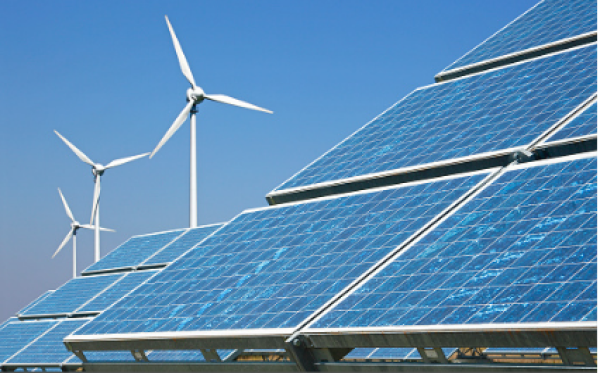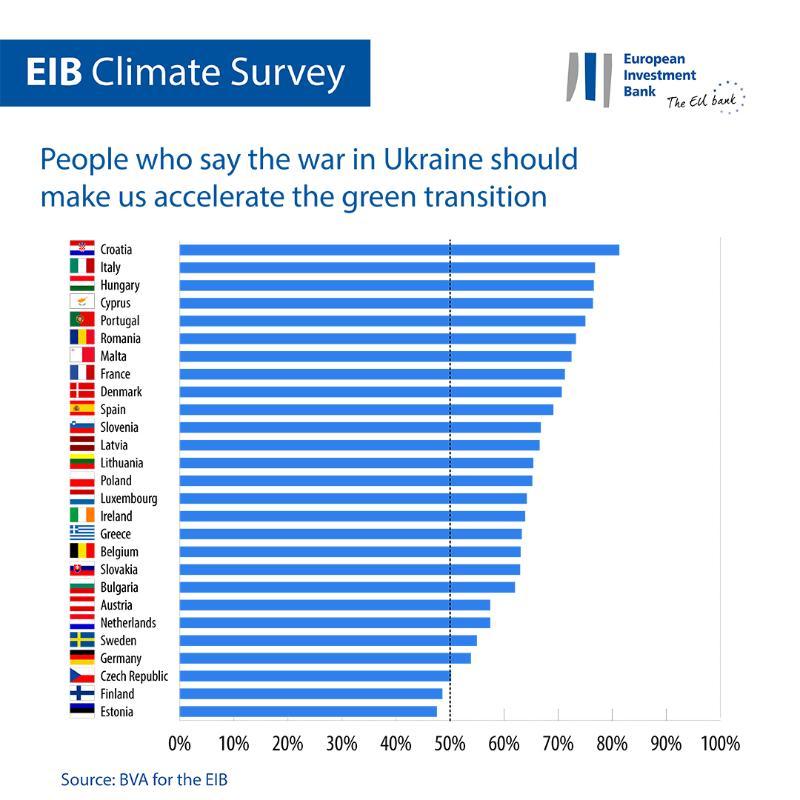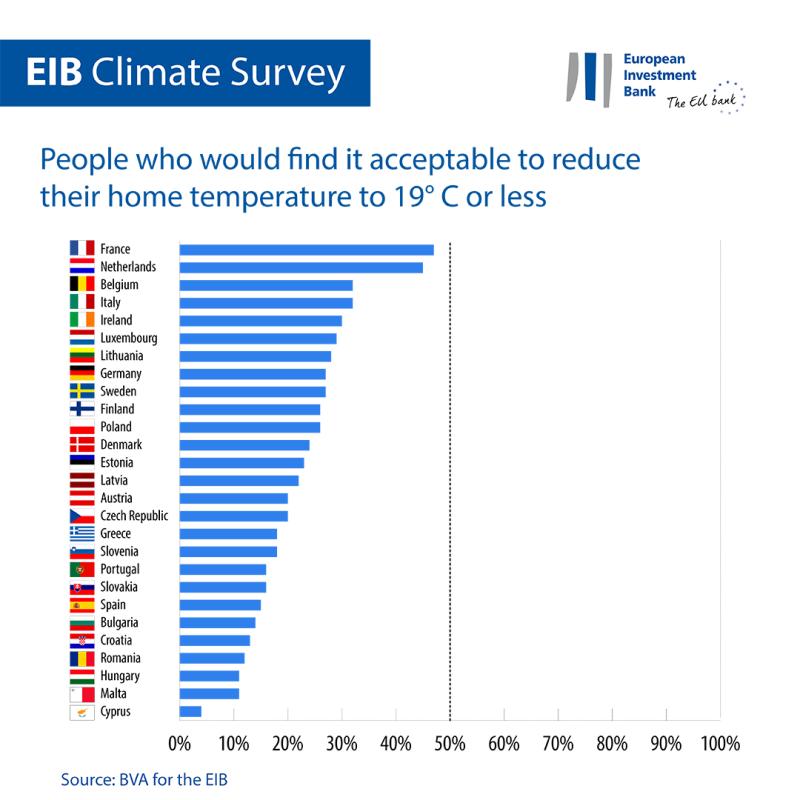
- 67% believe that the war in Ukraine and its consequences should accelerate the green transition.
- Despite the energy and inflation crisis, nearly a third of Slovenes (32%) consider climate change to be the biggest challenge the country is facing (6 percentage points more than last year), particularly among those aged 65 and over (47%; 24 percentage points more than last year).
- 88% say that, if we do not drastically reduce our consumption of energy and goods in the coming years, we will be heading for a global catastrophe.
- 71% give priority to heavily taxing highly polluting goods and services, such as sport utility vehicles (SUVs) and air transport.
These are some of the results from the latest yearly climate survey, conducted in August 2022 and published today by the European Investment Bank (EIB). The EIB is the lending arm of the European Union and the world’s largest multilateral lender for climate action projects.
After a challenging year in which the war in Ukraine sparked an ongoing energy crisis and accelerated inflation all over Europe, and a summer marked by record heatwaves and droughts, Slovenians have become even more acutely aware of the impact of climate change and the need for urgent action.
Climate change awareness and urgency
While COVID-19 was considered the biggest challenge facing the Slovenes last year, concerns about the increased cost of living now predominate. 70% cite it as their top concern, compared with 36% across the rest of the European Union.
Meanwhile, 85% of Slovenes say they are feeling the effects of climate change on their daily lives (2 percentage points more than in 2021). 88% think that, if we do not drastically reduce our consumption of energy and goods in the coming years, we will be heading for a global catastrophe. At the same time, 91% feel that the government is reacting too slowly to the crisis, and only 37% think that Slovenia will succeed in substantially reducing its carbon emissions by 2030.
War in Ukraine and the green transition
More than two-thirds of Slovenes (67%) believe that the war in Ukraine and its consequences for the price of oil and gas should provide an impetus to accelerate the green transition (close to the European average of 66%). Note that the survey was conducted in August this year and that public opinion on this topic may evolve rapidly.

When asked to rank their energy priorities, the Slovenes expect their government to prioritise the development of renewable energy (54%), before focusing on energy supply diversification to avoid being overly reliant on a single provider (28%).
Tackling climate change and addressing high energy prices
To reduce energy consumption, Slovenes prioritise heavily taxing highly polluting goods and services, such as SUVs and air transport (71%). They also support the indexing of energy prices to the level of consumption per household (61%): the more you consume, the more expensive energy becomes.
On reducing energy consumption, if Slovenes were to lower the temperature in their homes this winter, only 17% of them would accept capping it at 19° C (14 percentage points less than in Italy and 10 percentage points less than the European average). Meanwhile, 20% of Slovenians say that they already cannot afford to heat their homes properly.

Finally, on addressing high energy prices, the Slovenes think that in the short term the government should reduce energy-related taxes (43%). Other measures are less popular, such as capping or regulating the price of gas, oil and coal (26%), encouraging energy saving through public campaigns (18%) or giving out energy vouchers (10%).
The EIB’s Vice-President Lilyana Pavlova stated: “Ahead of the COP27 climate conference, the results of the EIB’s 2022 climate survey show that the Slovenes believe that accelerating renewable energy is a priority in fighting the global energy and climate crisis. At the EIB, we have been supporting innovative clean energy investments for many years, such as the construction of off-shore wind farms and more energy-efficient social housing. We stand ready to use our full range of advisory and financial instruments to support Slovenia in a green energy transition that leaves no one behind.”
Background information
About the EIB Climate Survey
The EIB has launched the fifth edition of the EIB Climate Survey, a thorough assessment of how people feel about climate change. Conducted in partnership with the market research firm BVA, the fifth edition of the EIB Climate Survey aims to inform the broader debate on attitudes and expectations in terms of climate action. More than 28 000 respondents participated in the survey in August 2022, with a representative panel of people aged 15 and above for each of the 30 countries polled.
About the European Investment Bank
Since 2019, the EIB has accelerated its transformation into a climate bank by committing to devoting at least 50% of its funding from 2025 to investments that contribute to the fight against climate change and the mitigation of its effects.
About BVA
BVA is an opinion research and consulting firm recognised as one of the most innovative market research firms in its sector. Specialised in behavioural marketing, BVA combines data science and social science to make data inspiring and bring the data to life. BVA is also a member of the Worldwide Independent Network of Market Research, a global network of some of the world’s leading market research and survey players, with over 40 members.